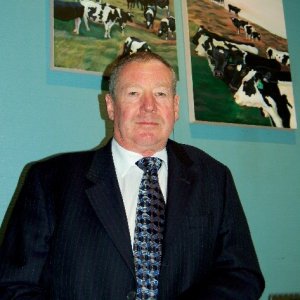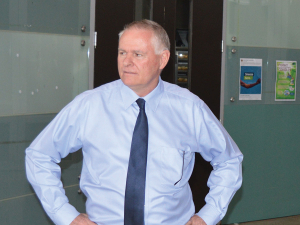"We fixed quite a lot of our lamb contracts this year early in the season. And we are able to hedge at a more favourable exchange rate. It's an example of how fixed price contracts can work in farmers' favour if they are prepared to commit to it and stick to it."
Landcorp fixed a lamb volume and price in New Zealand dollars with Tesco in the UK, effectively hedging that price against the pound.
"We can lock in a fixed price for the whole year and we know exactly what we are going to get for our lambs even if the schedule goes up or down or whatever."
Despite prices softening in Europe "the company we did the contract with was quite comfortable with the price they established and they are still selling lamb reasonably well," Kelly says.
"With the relative dearth of lambs for the past year or two because of the big conversion to dairying we've enjoyed some strong lamb prices and I think that will continue."
Landcorp chairman Jim Sutton, announcing the half-year result, warned about financial performance medium term because of uncertainties in the global economy.
Kelly believes that again comes down to the strong New Zealand dollar at 82c last week when two to three years ago the long-run average was 57c.
"There's no doubt prices have come off in New Zealand dollars, due mainly to the exchange rate... the lamb schedule has dropped a lot in the last few weeks. Whether that continues to drop or not, we're not sure. Fonterra is signaling a drop in their milk payout. Again that's due to our strong dollar."
Commenting on a $7 million increase in costs to $87.1 million for the half year, Kelly says a lot of the rising costs are hard to manage, such as rates and electricity.
"We can manage the costs of inputs such as fertiliser and that sort of thing; we have arrangements with fertiliser companies and like all farmers we try to get a good deal.
"But it's the insidious ones we have no control over and we are not the only ones. Obviously I talk to quite a lot of farmers and they are all saying the same thing. Costs are starting to creep up."
Kelly says in general he is "pretty bullish" about prospects. "I would comment again about the exchange rate; at 81c it's starting to bite and it's pretty much at a record high and settling at that higher level.
"But the general concept of the world wanting more protein... more milk, more red meat, will not go away. We are still a safe country to buy product from so I am pretty confident."
















